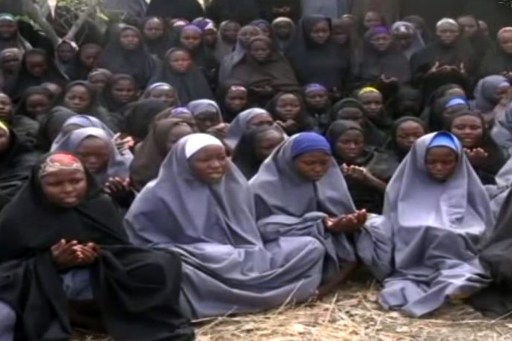Metro
Untold Stories Of What Happened To The Chibok Girls During Captivity

Ten years after the abduction of 276 girls from Chibok Girls Secondary School in Borno, a recent damning report revealed unsettling findings. Among them, it was disclosed that 21 of the released girls returned with 34 children. This stark revelation serves as a grim confirmation of the sexual violence and forced marriages endured by the girls during their captivity.
The report, released by the Murtala Muhammed Foundation (MMF) to mark the 10th anniversary of the abduction, also highlighted the tragic toll on the families of the victims. It noted that 48 parents of the abducted girls have passed away since the kidnapping, while survivors and their families continue to grapple with widespread psychological trauma, leading to health complications and obstacles to work and education.
During the virtual presentation of the report, Dr. Aisha Muhammad-Oyebode, the CEO of MMF, emphasized the urgency of addressing the lingering challenges. The foundation outlined 10 key recommendations aimed at urging both the Nigerian government and the international community to collaborate on prioritizing critical areas of intervention.
These recommendations encompass a range of measures, including enhanced security protocols, community empowerment initiatives, provision of psychological support services in high-risk areas, educational programs, legal reforms, transparent communication channels, humanitarian aid and development assistance, women’s empowerment initiatives, and the establishment of early warning systems for security threats.
According to Aisha Muhammed-Oyebode: “In the ten years since the Chibok kidnapping caused global outrage, very little has changed on the ground in Nigeria where kidnapping is still as prevalent, if not worse than a decade ago.
“As Nigeria’s kidnapping epidemic shows no signs of slowing, we urge the Nigerian authorities and the international community to take concrete steps to address the underlying drivers of conflict, extremism, and violence against women and girls, which include widespread poverty, instability, and a lack of economic opportunities.
“The report found that 91 out of the 276 schoolgirls remain unaccounted for. The report also revealed that 21 of the Chibok girls who were released returned with 34 children, serving as a devastating confirmation of the sexual violence and coerced marriages they endured while in captivity.
“Other key findings included:
● In 2014, 57 schoolgirls escaped by jumping off the Boko Haram trucks.
● Between 2016 and 2023, 128 girls have since been rescued, exchanged in deals with Boko Haram or found in countries including neighbouring Cameroon after escaping.
● 1 of the girls to be released opted out of the negotiations at the last minute, choosing to remain with her captors.
● 48 parents of the abducted victims have died since the girls were kidnapped, with
widespread psychological trauma for survivors and their families, leading to health issues and barriers to work and education.
● 3 of those parents were killed by Boko Haram in subsequent attacks in 2014, 2016, and 2017, respectively.
● In February 2018, Boko Haram abducted over 100 schoolgirls in a town called Dapchi in a shocking attack that was worryingly similar to the Chibok kidnapping.
● Several cases of kidnapping and instability persist, with girls among those most at risk.
“The MMF’s report shares recommendations in efforts to address the root causes of the kidnapping and urges for international cooperation to urgently act to deliver solutions that put an end to the crisis,” Aisha Muhammed-Oyebode disclosed in the report.
The CEO went on to advocate for a zero tolerance policy and ensure that those who are responsible for the atrocities documented are brought to justice no matter how powerful or well connected.
“Legal accountability must be institutionalized and must apply to those who were neglectful in their duty to protect our most vulnerable. The 34 babies born to the Chibok mothers are evidence of egregious atrocities that demand justice.
“Forced marriage in conflict, declared a crime against humanity by the United Nations in Sierra Leone, was perpetrated against many of the abducted girls both Muslim and Christian compounding their trauma and suffering. The separation from their families, the violation of their rights and the assault on their dignity constitute grave injustices that must not go unpunished,” she said.
Send Us A Press Statement Advertise With Us Contact
And For More Nigerian News Visit GWG.NG


